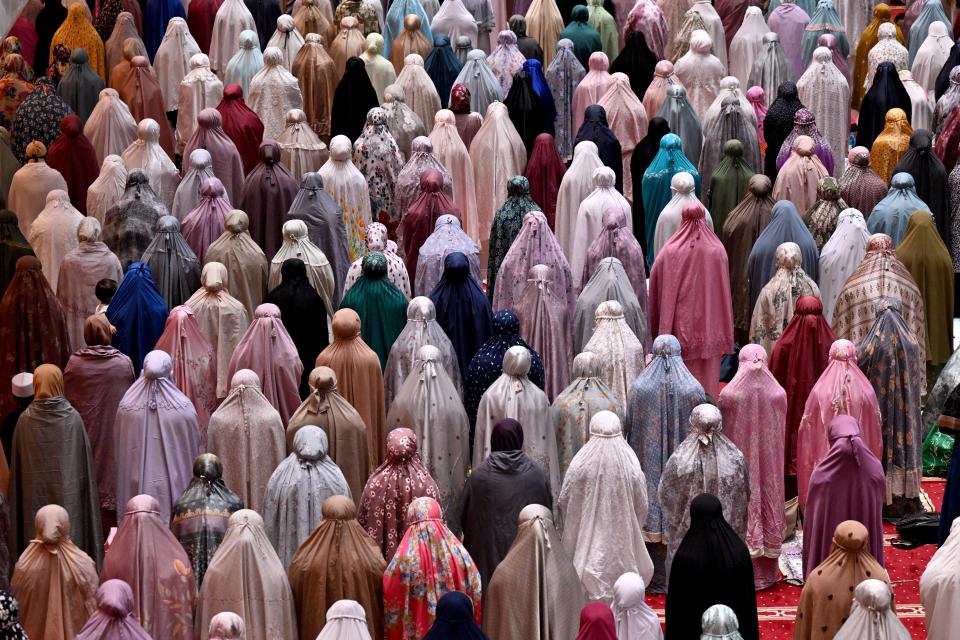Ramadan: How long do Muslims in Ohio fast? When do Muslims break their fast?
As Muslims observe Ramadan, they fast from sunrise to sunset, abstaining from food and water.
That’s right. Not even water.
Muslims worldwide will wake up quite early in the morning during the month of Ramadan to enjoy suhoor—the meal eaten before the beginning of their fast. Once Fajr, the first of five obligatory prayers of the day, begins at dawn, so does their fasting. But when do they break it?
Once it's sunset, it’s time for the fourth prayer of the day — Maghrib — marking the end of fasting hours. Muslims will break their fast, traditionally with dates, followed by a fulfilling meal called iftar.
Want to know what time Maghrib is where you live? Find out prayer times in Columbus and other locations in the United States on the Islamic Finder website.
Ramadan 2024: What is Ramadan? When does it happen? What to know about Muslims' favorite time of the year
Ramadan fasting hours are different all over the world
Daylight hours are shorter in certain areas while others are longer.
Spring daylight hours in the northernmost countries north of the equator lengthen, meaning fasting hours extend each day following the spring equinox. Muslims in far northern locales could experience nearly 15 hours of fasting before Ramadan ends. Those in the southernmost counties could have around 12 hours or less of fasting.
This year, Muslims in Ohio will fast for up to 13 hours each day before the month of Ramadan ends.
When does Ramadan start?
Ramadan takes place during the ninth month of the lunar calendar. Since the lunar year is shorter than the solar year by 11 days, Ramadan begins about 10 to 12 days earlier from its 2024 beginning every year. The lunar calendar helps determine the beginning and end of Ramadan, as it’s based on crescent moon sightings.
The holy month will eventually intertwine with winter solstice by 2031, dramatically shortening fasting hours compared to those of 2024. In the Northern Hemisphere, fasting hours lessen when Ramadan begins in early winter. This is due to the Northern Hemisphere facing away from the sun because of the tilt of the Earth’s axis during the winter months.
After the winter solstice, the Earth will begin tilting toward the sun, lengthening daylight hours in the Northern Hemisphere. As the year reaches the summer solstice, fasting could last up to 15 or 16 hours during summer Ramadan observances. But for areas south of the equator, it is the opposite.

This article originally appeared on Cincinnati Enquirer: Ramadan: When is it time to break fast? Find your local prayer times

